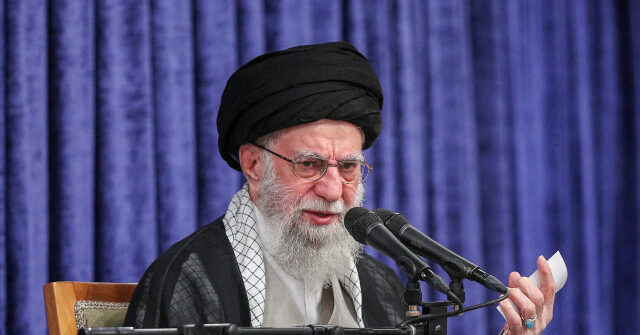The E3 nations – France, Germany, and the United Kingdom – initiated the process of imposing “snapback” sanctions on Iran at the United Nations on Thursday. The sanctions will take effect in September unless the process is halted.
The E3 nations initiated the 30-day snapback process on Thursday, invoking a mechanism built into the nuclear deal that allows any party to restore sanctions against Iran if it believes the Iranians have violated the deal.
The nuclear deal, formally known as the Joint Comprehensive Plan of Action (JCPOA), is due to expire on October 18 unless it is extended. If the snapback countdown is not completed by that date, the entire JCPOA will disappear, and reimposing sanctions would become a matter for the U.N. Security Council (UNSC) to decide.
Russia has signaled its intention to come to Iran’s assistance by blocking snapback and securing a six-month extension to the JCPOA, but Russia does not actually have veto power against sanctions under the deal. If the snapback countdown is not completed by October 18, however, Russia and China would be able to exercise their vetoes against UNSC efforts to restore sanctions on Iran. Also, Russia will assume the rotating presidency of UNSC in October, giving it extra leverage to thwart sanctions on Iran.
The United States withdrew from the JCPOA during President Donald Trump’s first term, so it is no longer a party to the agreement and could not have initiated the snapback process.
The E3 nations stayed in the deal after Trump withdrew, and made every effort to keep the JCPOA alive, but Iran’s intransigence and lack of cooperation became intolerable.
Secretary of State Marco Rubio welcomed the move. He said the three European signatories to former president Barack Obama’s 2015 nuclear deal “have laid out a clear case” of Iran failing to meet its nuclear commitments, thus “establishing a strong basis for initiating snapback.”
“Moreover, the E3 could have initiated snapback at any point since 2019 but chose instead to first pursue intensive outreach and engagement – to provide Iran with a diplomatic offramp from its strategy of nuclear escalation,” he noted.
Rubio thanked E3 leaders for their efforts and pledged America’s cooperation to “successfully complete the snapback of international sanctions and restrictions on Iran,” but he also told Tehran that the U.S. “remains available for direct engagement” to resolve the nuclear issue.
“Snapback does not contradict our earnest readiness for diplomacy, it only enhances it,” he said.
“I urge Iranian leaders to take the immediate steps necessary to ensure that their nation will never obtain a nuclear weapon; to walk the path of peace; and to, by extension, advance prosperity for the Iranian people,” Rubio concluded.
The Iranians largely stopped working with the International Atomic Energy Agency (IAEA) after it formally censured Iran for non-compliance in June, but they had already been playing games with inspections and refusing to answer questions about uranium traces at undeclared nuclear facilities for years.
Israel, and later the United States, launched airstrikes against Iran’s uranium enrichment facilities after the IAEA action in June, inflicting significant damage on Iran’s nuclear program. Some Iranian officials have accused the IAEA of working with Israel and the U.S. to set up the airstrikes.
The E3 tried to convince the Iranians to allow full inspections and halt their efforts to enrich uranium to near-weapons-grade, but the Iranians remained adamant about their “right to enrich.”
The snapback sanctions would put heavy pressure on Iran, as they would freeze its overseas assets, scuttle its arms deals, and restore all of the punitive sanctions that were in place before Obama’s nuclear deal in 2015. The Europeans said they hoped Iran would return to the table and make a deal before the 30-day countdown to snapback ends.
“This measure does not signal the end of diplomacy: we are determined to make the most of the 30-day period that is now opening to engage in dialogue with Iran,” French Foreign Minister Jean-Noel Barrot said.
Iran’s initial response was not exactly encouraging. Iranian Foreign Minister Abbas Araghchi slammed the snapback process as “unjustified, illegal, and lacking any legal basis,” even though it was clearly laid out in the 2015 agreement.
“The Islamic Republic of Iran will respond appropriately to this unlawful and unwarranted measure,” Araghchi said, possibly alluding to Iran’s threats to completely withdraw from the 1970 Nuclear Non-Proliferation Treaty (NPT).
Read the full article here


